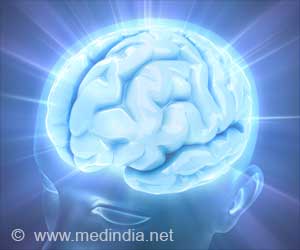This World Kidney Day 2011, Dr. Georgi Abraham, speaks to Medindia on the link between kidney health and heart health, giving simple tips to readers for healthy maintenance of kidneys.
World Kidney Day 2011 campaign will focus on the theme Protect your kidneys, Save your heart, calling to attention the vastly ignored role played by kidney dysfunction in increasing cardiovascular disease, which is a common cause of death worldwide. Medindia heard Dr. Georgi Abraham, MD, FRCP, Founder Trustee TANKER foundation, Consultant Nephrologist Madras Medical Mission Hospital and Executive Member of the World Kidney Day by the International Society of Nephrology speak on the link between kidney health and heart health and give simple tips to readers for healthy maintenance of kidneys.
Q. In your experience, do you see any improvement in kidney health awareness among the Indian population?Sadly, No. Media messages are trying to spread kidney health awareness but people—both literate and illiterate, have not taken the message seriously. They don’t realize the importance of safeguarding their kidneys and see a doctor only after the damage is done.
Primary Care Physicians or General Physicians (GP) have the advantage of getting people to focus on kidney health. If a patient above 40 years sees a GP for some illness, the GP should ensure that the person takes a Plasma Creatinine Test and a Urine test for albumin and blood. The normal upper limit of Creatinine is 1.2 mg for a man and 1 mg or less for a woman. The person should also be tested for fasting blood sugar. These tests can reveal hidden kidney problems for which the symptoms may not surface till a much advanced stage.
Normal BP for young people: 120/80 mmHg
Normal BP for old people : 140/90 mmHg
Q. Why is there a twin focus on the kidneys and the heart, this World Kidney Day?
Kidney disease that is not detected and treated at an early stage is a great multiplier for heart attack. Majority of the people with kidney disease die of heart attack and they may not even have had symptoms of a kidney ailment in the first place. Current statistics show that in the US about 13% of the people have chronic kidney diseases (CKD), with a projected increase to 37% in those aged 50 years and above and an increase to 50% in those above 75 years of age.
There is very clear evidence that using too much salt of any kind in food can produce long term irreversible damage in kidneys, lungs and heart. In the absence of any serious media watchdog, the consumer has to exercise caution and not fall for flashy ads endorsing lip smacking food items such as chips that are high in salt content. GPs and pediatricians can advise their patients on healthy food habits and prevent them from swaying towards poor food choices.
Tamil Nadu Kidney Research Foundation (TANKER) is a non profit organization that we started in 1993 to provide medical care to underprivileged patients with kidney diseases of any kind—reversible or terminal. TANKER’s primary objective is to sustain the gift of life. It has 3 main arms—one is to provide treatment and dialysis for poor patients with kidney ailments by supporting them with medication and even transplantation, either free of cost or at a subsidized rate, depending on the need. TANKER works against the stigma attached to HIV/AIDS patients with kidney disease to help them live with dignity. The second arm of TANKER deals with research in kidney diseases focusing on Continuing Medical Education (CME) in this field. The third wing works to spread awareness among people about screening for early detection and eradication of kidney diseases. Our vision is a world that ensures good healthcare and medical facilities for everyone.
Q. Please give some preventive tips to protect the kidneys?
• Check your blood sugar and blood pressure levels regularly. In fact, ideally blood pressure should be checked for children too, from age 3 onwards.
• Exercise regularly and maintain a healthy weight with a Body Mass Index (BMI) of 24 or less.
• Avoid fast food—they are prepared to tickle your palate and make you eat more. They are the surest way to diabetes and high blood pressure.
• Parents should lead by example— follow a health diet and lifestyle and ingrain basic rules for healthy living in your children.
• Use a visit to your GP to clear your doubts on food habits and lifestyle changes.
• Eat smart, exercise regularly and lead an active life.
If you haven’t spared a thought for your kidneys, it’s time to start now. Take a serious look at your food habits and lifestyle and make suitable alterations. Step out this World Kidney Day 2011 to get yourself checked to rule out diabetes and high blood pressure. Protect your kidneys, Save your heart, Save yourself.
Source-Medindia















